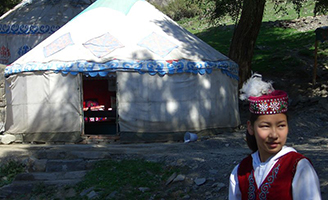Kazakhstan to Reform Its Cultural Sector
By Rafis Abazov and Andrey Khazbulatov (05/13/2015 issue of the CACI Analyst)
In his presidential election campaign, Kazakhstan’s President Nursultan Nazarbayev pledged special attention to cultural policy through implementation of the Concept of Cultural Policy, envisioned to streamline the country’s policies on culture, cultural education and arts to strengthen what he calls “the genetic [cultural] code of the nation.” In introducing this Concept, Kazakhstan’s government emphasizes cultural policies despite the current financial crisis and significant budget cuts due to falling oil prices in the international market. But will reforming its cultural sphere deliver expected outcomes and results?





 Silk Road Paper S. Frederick Starr,
Silk Road Paper S. Frederick Starr,  Book Svante E. Cornell, ed., "
Book Svante E. Cornell, ed., "